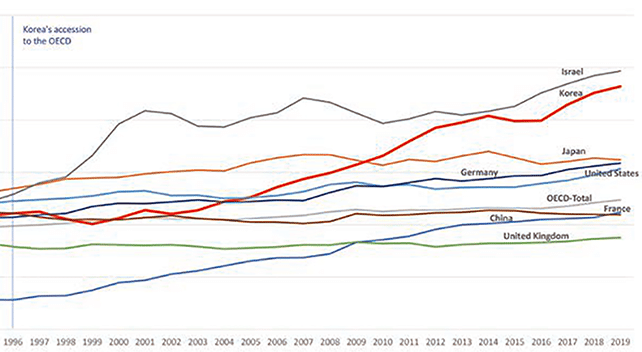Know Before You Go: Collections Complexities in Asia

Know Before You Go: Does What Happens in China (eDiscovery) Have to Stay in China?
October 10, 2017
Challenges of eDiscovery for FCPA Investigations in Japan
July 9, 2018
As part of our series on Asia cross-border eDiscovery issues and best practices, in this post we provide an overview of the unique challenges of data collections in Asia. While data collection may seem daunting for even the most experienced cross-border teams, you need not go it alone; an understanding of common challenges can help you select experts in CJK technology, language, culture and laws surrounding data collection.
Data Privacy
Data privacy rules in Asia vary by country and region, and eDiscovery experts with local experience can help U.S. legal teams navigate the myriad rules and reduce the risk of missteps. In just the past year, China’s already nebulous privacy and state secret laws have become even more so with its new cybersecurity law and Japan has enacted a new personal privacy law which has not yet been interpreted by the courts. South Korea, where one can face criminal penalties for improper transfer of personal information, also remains a difficult region to navigate. eDiscovery experts with current experience in the local legal environment provide an added level of quality and accuracy while reducing risk of penalties.
Beyond data privacy rules, there are several technical challenges. By no means is this a comprehensive description; rather, the summary is intended to provide the basics that enable you to improve communication with your eDiscovery collections experts and improve the overall experience.
Encryption Practices
Asian companies frequently encrypt their data, creating obstacles for collection experts. In an effort to comply with data privacy laws, encryption is seen as not just reasonable, but also a necessary means of protecting personal data. In much of Asia, encryption is a key component of effective data privacy. Article 26 of the Singapore Personal Data Protection Act (PDPA), for example, requires organizations to protect personal data by making “reasonable security arrangements to prevent unauthorized access, collection, use, disclosure, copying, modification or disposal or similar risks.”
Companies in Asia tend to prefer to use their in-house teams for data collection, which is often regarded as a straightforward task by IT personnel. Forensic collection is often only done reluctantly as it is viewed as an unnecessary expense. What many don’t realize, however, is that there are often important reasons for collecting data in a forensically sound manner. At times preservation of metadata is essential to the issues of the case. At other times collection by the vendor is preferred to preserve chain of custody and avoid any allegations of mishandling of data or bias in the collection process. While remote collection has risen in popularity stateside, IT personnel have much less experience with collection for the purposes of litigation. Many large companies are still collecting data for the first or second time. Receiving instructions in a non-native language only compounds this difficulty. As a result, even the most highly skilled IT teams ultimately may rely on experienced collections experts to mitigate risks and ensure admissibility.
Use of Chat versus Email
In China, email never reached the ubiquity it has in other countries. Most Chinese consumers seldom use email, even if they have an email address. Chat applications remain the preferred method of communication between friends, families, colleagues, business partners, and even strangers, and cannot be overlooked in scope for collection, processing and review.
When asked why, most Chinese or expats will simply point to WeChat. With nearly 900 million monthly users, it’s the chat app of choice in China, where the app also is strong in online publishing and mobile payments. In Asia, mass internet adoption is a relatively recent trend that ‘skipped’ the desktop era, and grew as part of the mobile revolution. Messaging platforms like WeChat, LINE, Facebook Messenger or WhatsApp are very common and can fall within the scope of discoverable business communications.
In Japan, on the other hand, mobile carriers historically issued email accounts with cell phones, which were used instead of text messaging until the rise of texting applications like LINE, which is now the most popular messaging service in Japan. In addition to messaging applications, these cell phone email accounts may still be used by employees, yet overlooked by vendors not familiar with the custom.
Unique Email Systems
Unique email systems are more prevalent in Asia that in the U.S., and data collection experts need to be prepared to collect from different multilingual software platforms that generate different metadata fields than standard U.S. software. For example, messages from many email programs still used in Asia, including “Becky” email or “Thunderbird,” are unusual file types that are not often recognized by western tools. In some cases, .MSG email files may have metadata (such as email headers) that are non-Unicode compliant and would convert into garbled characters when processed. Experts in CJK collections can recognize these systems and ensure the data and metadata is collected accurately for downstream search and review.
Names and Salutations
When reviewing or assessing a data roadmap, include discussions with corporate management to understand the management hierarchy, and to clarify the way employee names are used in formal communications, in casual email content, and in email address formats. In custodian interviews, ask about alternate names, or nicknames the person may be known by.
For example, a Korean name consists of a family name, usually of one syllable, plus a given name, usually of two syllables. In the Korean culture, it would be highly abnormal to call a business associate by their first name. In Japanese, the surname also comes before the given name. Japanese names are usually written in kanji (a system of Japanese writing using Chinese characters). However, in internal emails, it is not uncommon for employees to refer to each other by first names, or in some cases even nicknames when speaking casually. Native language speakers and local counsel can greatly assist in handling the nuances of using names and honorifics.
Paper Discovery
While paper discovery may be a relic in countries with more developed eDiscovery frameworks, many Asian countries still rely heavily on paper. Since paper sizing (and even hole punching) may be different than standard U.S. legal size, and OCR may not be available for many languages, paper documents are often overlooked as a source of evidence.
Applying Collection Expertise
Language barriers, cultural differences, and lack of experience with U.S. discovery process by many Asian companies raises the degree of difficulty for any cross-border collection project. will require it. When you know that a cross-border case will involve collection of data in Asia, select an experienced collections team with native language speakers and collections experts in-country.
In a future post, we will discuss the challenges of processing, indexing and making CJK searchable.



